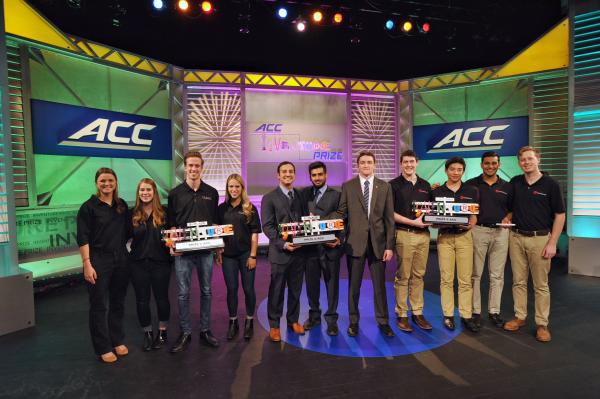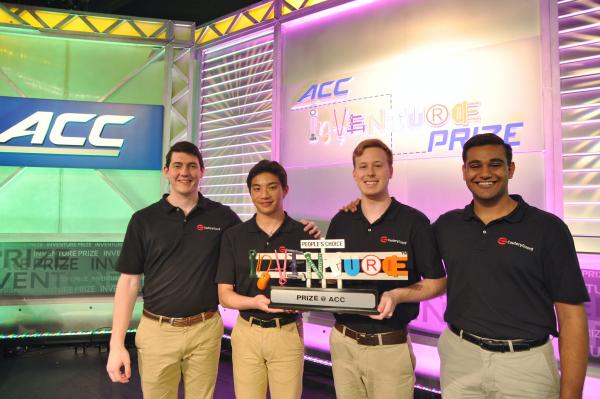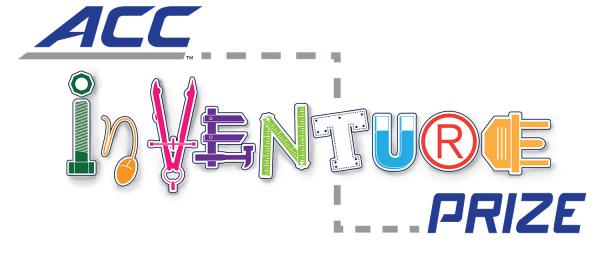Four Georgia Tech students who improved a medical device to protect patients and doctors won $5,000 Friday night during the ACC InVenture Prize, an annual undergraduate entrepreneurship competition.
The students invented the CauteryGuard, which adds a retractable tip to current electrocautery devices. Their design eliminates the risk of burns from the device’s exposed tip and prevents the chance of fires in operating rooms caused by an exposed tip coming into contact with flammable materials. The device won the People Choice Award, which went to the fans’ favorite invention.
The ACC InVenture Prize awards $30,000 in prizes to undergraduate students whose innovations aim to solve world problems and make our lives easier.
A team of five students from University of Virginia won first place and $15,000. They started a biotech company, AgroSpheres, which gives farmers precise control over their harvesting schedule by degrading excess pesticides into a non-toxic derivative.
A team of four students from Virginia Tech finished second and earned $10,000. They created Kare Powder, a topical, advanced wound care dressing that allows for faster and more effective healing for chronic patients.
Each of the 15 universities in the Atlantic Coast Conference (ACC) selected a team of student entrepreneurs for the competition, which was held at Georgia Tech.
The tournament is modeled after Georgia Tech’s InVenture Prize, which started in 2009.
CauteryGuard won this year’s InVenture Prize. The device’s inventors are: Jack Corelli, Hunter Hatcher, Devin Li and Dev Mandavia. They are all biomedical engineering majors.
Media Contact
Laura Diamond
Media Relations
404-894-6016
@LauraRDiamond
Latest BME News
Jo honored for his impact on science and mentorship
The department rises to the top in biomedical engineering programs for undergraduate education.
Commercialization program in Coulter BME announces project teams who will receive support to get their research to market.
Courses in the Wallace H. Coulter Department of Biomedical Engineering are being reformatted to incorporate AI and machine learning so students are prepared for a data-driven biotech sector.
Influenced by her mother's journey in engineering, Sriya Surapaneni hopes to inspire other young women in the field.
Coulter BME Professor Earns Tenure, Eyes Future of Innovation in Health and Medicine
The grant will fund the development of cutting-edge technology that could detect colorectal cancer through a simple breath test
The surgical support device landed Coulter BME its 4th consecutive win for the College of Engineering competition.










